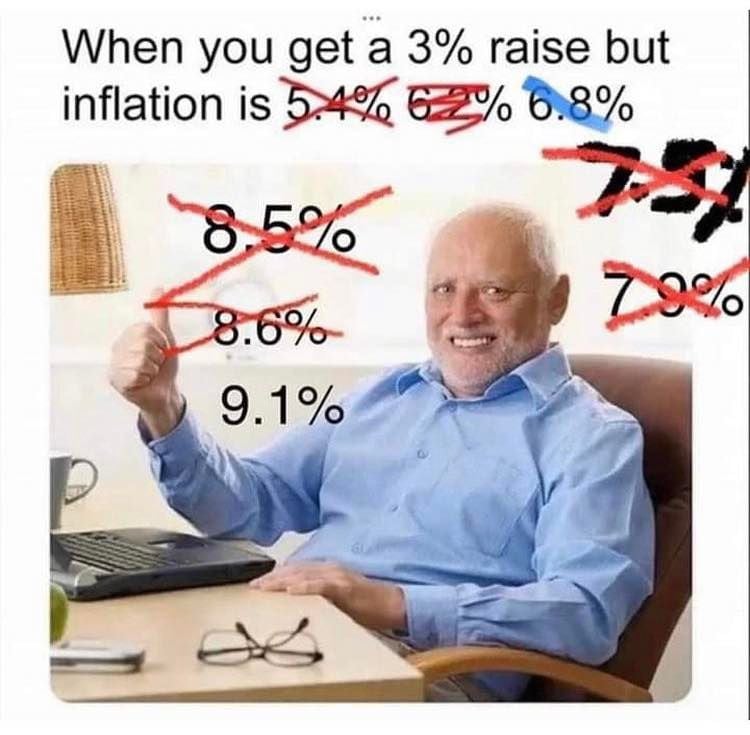this post was submitted on 11 Aug 2023
1566 points (98.2% liked)
Memes
46492 readers
1476 users here now
Rules:
- Be civil and nice.
- Try not to excessively repost, as a rule of thumb, wait at least 2 months to do it if you have to.
founded 5 years ago
MODERATORS
you are viewing a single comment's thread
view the rest of the comments
view the rest of the comments

Price caps set to low cause this. Luckily we have a lot of data available nowadays and with AI a more managed economy should be a no brainer. Pretending reigning in price gouging will cause shortages is disingenuous. Although the best way to handle this would be to increase competition.
Any price cap on a good that can be transported to markets which pay more will cause shortages in the market which pays less. Basic economics.
If you want to rein in price gouging the best way to do that is with competition and antitrust actions.
Basic economics says this only happens when the cap is set to low but it is entirely possible to adjust accordingly as seen in systems like universal healthcare. Thanks for the sophomoric understanding though it really added to the conversation /s
Universal healthcare systems don't sell a transportable good. Emergency healthcare isn't exportable. Wheat is.
If you are starving then the price of wheat is not very elastic, but do carry on. Whatever is clever.
Starvation isn't a widespread issue in either the US or the EU. We aren't spending 80% of the typical family income on food in either location. This isn't South Sudan or a nation similarly undeveloped, where families are scratching at subsistence farming.
If you capped the price of bread at, say, $1 a loaf, then bakeries would want to sell for less in order for retailers to sell for that one dollar figure. Which means baking loads for a percentage of that $1, which means reducing the local price of wheat to match. In a location where the price of a loaf of bread is $2 a loaf, then they can pay more or less twice as much for wheat.
Basic supply-demand equation. Econ 101.
The point here is that if you break the supply-demand equation by instituting a cap on the price of bread, you're moving the supply down while moving the demand up as more people seek to buy bread and it becomes a much less attractive product to bake and sell. Barring subsidies to producers and retailers to support the price cut - at which point, we may as well just centrally distribute bread - then there will be unfulfilled demand, since the price cannot rise enough to motivate supply to meet demand.
Which means shortages. Very basic econs.
A price cap moves the measurement point in that graph away from equilibrium and shifts both lines to the left. The gap in between is unfulfilled demand.
It is like a jet plane passing overhead with you isn't it? Not even disagreeing with you just pointed out your simple explanation is right only if you set the price too low. Then I mentioned competition is the best way to handle it which you restated like you were correcting an imaginary straw man. Needless to say your basic econ lesson breaks down whenever the price fails to be elastic which happens quite often.
You must be an asspie or something I guess.
If you don't set the price goo low then you're not changing the price